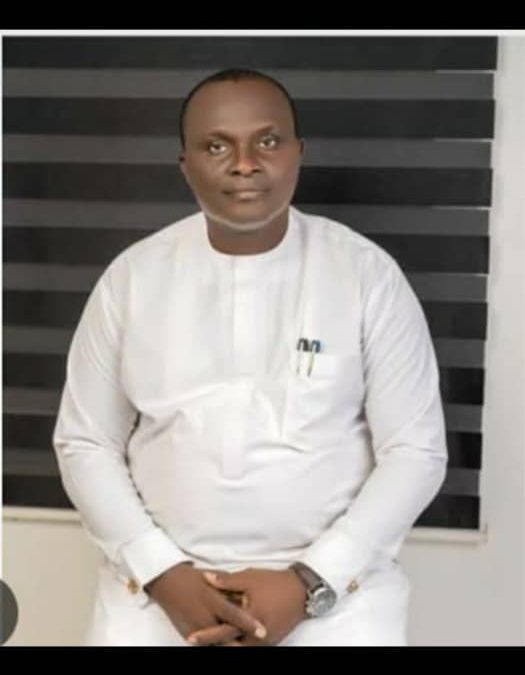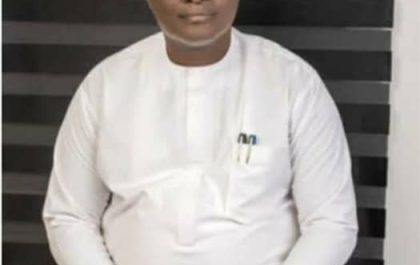As the United States prepares to host a select group of African leaders in Washington on July 9 for high-level discussions on trade and strategic cooperation, a glaring omission has sparked diplomatic outrage in Nigeria:
Africa’s most populous nation and largest economy has not been invited.
Professor James Okoroma, a leading voice in the African Democratic Congress (ADC) and the party’s gubernatorial candidate in Imo State during the last general elections, along with other party members, has sharply condemned Nigeria’s exclusion. In a strongly worded statement, Prof. Okoroma described the snub as “a damning indictment of chaotic and uninspiring leadership at the center.”
“This is not a diplomatic oversight or a scheduling error,” Okoroma said. “It is a deliberate verdict, -scathing in symbolism and staggering in implication. Nigeria is no longer seen as a necessary partner in shaping Africa’s future.”
The upcoming summit, hosted by the U.S. President Donald J. Trump, will welcome the leaders of Gabon, Guinea-Bissau, Liberia, Mauritania, and Senegal. Notably absent is Nigeria, -a country that once proudly bore the title of the “Giant of Africa” and played central roles in peacekeeping, economic integration, and regional diplomacy.
A Declining Diplomatic Influence
Observers and political analysts alike say Nigeria’s absence reflects a deeper crisis in its international reputation. The country’s influence, -once unmatched in West Africa, -has shrunk significantly. Despite holding the chairmanship of the Economic Community of West African States (ECOWAS), Nigeria has presided over a period of disintegration. Mali, Burkina Faso, and Niger have all withdrawn from the bloc, citing disenchantment with Abuja’s policies and leadership style. From 15 members, ECOWAS has been reduced to 12.
“Nigeria once inherited a continent looking to it for guidance,” Prof. Okoroma noted. “Today, those same neighbors are charting independent paths, -often in opposition to Nigeria.”
This unraveling is especially troubling given Nigeria’s historical role in shaping Africa’s political and economic agenda. From the days of Murtala Mohammed’s pan-African vision in the 1970s to Olusegun Obasanjo’s assertive diplomacy in the early 2000s, Nigeria has traditionally held sway across the continent. The present moment, however, marks a sharp departure.
From Giant to Ghost
Alhaji Shaibu, a northern political elder and policy observer, did not mince words:
“From Giant of Africa to diplomatic ghost. We are no longer invited to the table, – we’re not even in the hallway.”
He warned that Nigeria’s increasing exclusion from critical summits and strategic partnerships is more than symbolic, -it is a clear sign of global disengagement. “The world is forming new alliances. Our absence from those rooms means we’re losing both relevance and leverage.”
Commercial Irrelevance on the Rise
Beyond diplomacy, Nigeria’s economic posture is faltering. While other African nations, -such as South Africa, Morocco, and Kenya, -continue to attract U.S. and European interest through robust trade negotiations and technological collaboration, Nigeria’s foreign direct investment (FDI) has plummeted to historic lows. Investors cite policy inconsistency, insecurity, and lack of confidence in the current administration.
“We’re not just missing from Trump’s summit,” said Dr. Ogechi Okwuosa, a Lagos-based geopolitical analyst. “We’re absent from key trade conversations, investment forums, and innovation networks. It’s a symptom of broader disengagement.”
Although the July 9 meeting is not a formal U.S. government initiative, it carries substantial symbolic weight. Trump is signaling a shift toward smaller, more stable, and cooperation-driven African nations, leaving behind traditional heavyweights mired in internal dysfunction.
Looking Ahead: Can Nigeria Recover?
With domestic discontent rising and regional alliances realigning, Nigeria’s absence from the Trump-hosted summit serves as a sobering reminder: the country’s voice on the world stage is no longer assured.
Yet there is a sense among many, including Prof. Okoroma, that recovery is possible, -but not under the current trajectory.
“The time has come to rethink our direction, restore global trust, and rebuild our influence,” he said. “And that journey begins with bold leadership. Peter Obi offers that hope, -fresh, credible, and globally respected.”
As the world gathers without Nigeria at the table, many in Abuja are left asking: How did we get here? And more importantly, can we find our way back?
King Eze
Tori4Town News
contactkingeze@gmail.com
What Trump’s Africa Summit Reveals About Abuja’s Diminished Global Standing Seen through the lens of ADC Imo State party chairman, Prof. James Okoroma.
Related posts
Subscribe for newsletter
* You go receive the latest tori wen you put your email



